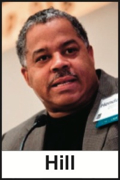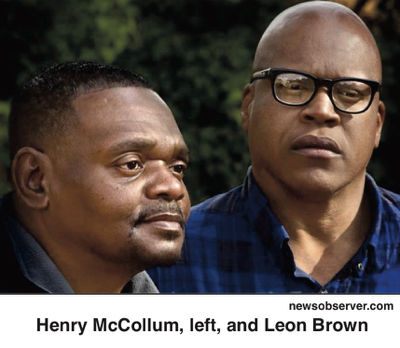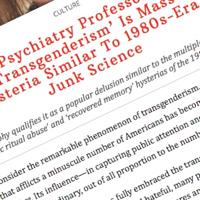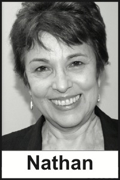Rascals case in brief
In the beginning, in 1989, more than 90 children at the Little Rascals Day Care Center in Edenton, North Carolina, accused a total of 20 adults with 429 instances of sexual abuse over a three-year period. It may have all begun with one parent’s complaint about punishment given her child.
Among the alleged perpetrators: the sheriff and mayor. But prosecutors would charge only Robin Byrum, Darlene Harris, Elizabeth “Betsy” Kelly, Robert “Bob” Kelly, Willard Scott Privott, Shelley Stone and Dawn Wilson – the Edenton 7.
Along with sodomy and beatings, allegations included a baby killed with a handgun, a child being hung upside down from a tree and being set on fire and countless other fantastic incidents involving spaceships, hot air balloons, pirate ships and trained sharks.
By the time prosecutors dropped the last charges in 1997, Little Rascals had become North Carolina’s longest and most costly criminal trial. Prosecutors kept defendants jailed in hopes at least one would turn against their supposed co-conspirators. Remarkably, none did. Another shameful record: Five defendants had to wait longer to face their accusers in court than anyone else in North Carolina history.
Between 1991 and 1997, Ofra Bikel produced three extraordinary episodes on the Little Rascals case for the PBS series “Frontline.” Although “Innocence Lost” did not deter prosecutors, it exposed their tactics and fostered nationwide skepticism and dismay.
With each passing year, the absurdity of the Little Rascals charges has become more obvious. But no admission of error has ever come from prosecutors, police, interviewers or parents. This site is devoted to the issues raised by this case.
On Facebook
Click for earlier Facebook posts archived on this site
Click to go to
Today’s random selection from the Little Rascals Day Care archives….
Click for earlier Facebook posts archived on this site
Click to go to
Today’s random selection from the Little Rascals Day Care archives….
When ‘overwhelming community sentiment’ wins
 June 10, 2013
June 10, 2013
“The danger posed by courts and prosecutors who abdicate their responsibilities to uphold the Constitution in favor of overwhelming community sentiment was recently illustrated in State v. Robert Fulton Kelly Jr.
“The trial prosecutor and the Superior Court judge were so overwhelmed by community sentiment that the trial was converted from a proceeding to adjudicate Mr. Kelly’s guilt or innocence into a forum to assist the families of the scores of alleged child victims recover from the gut-wrenching allegations of the 100-count indictment. The result: Justice was poorly served.
“The individuals thought to be victims and their many family members, loved ones and neighbors were frustrated, angered and in the end felt cheated. The individuals accused of heinous abuse of scores of children were deprived of a fair trial and deprived of liberty for more than three years.”
– From a talk by Henderson Hill, director of the N.C. Resource Center, Office of the Appellate Defender, at the Senator Sam J. Ervin Jr. Constitutional Issues Program, (May 18, 1995)
McCrory tires of Sherlock Holmes impersonation
 June 4, 2015
June 4, 2015
“Gov. Pat McCrory on Thursday pardoned two half-brothers who were exonerated of murder after spending three decades in prison.
“The governor took nine months to make the decision….”
– From “Governor pardons McCollum, Brown” by Craig Jarvis in the Raleigh News & Observer (June 4)
Henry McCollum and Leon Brown, both intellectually disabled and now destitute, had been declared innocent last year by a Superior Court judge. But that exoneration, based on DNA evidence from the crime scene, wasn’t good enough for the governor, and even now the statement accompanying his pardon of innocence is lukewarm at best:
“It is difficult for anyone to know for certain what happened the night of Sabrina Buie’s murder…. I know there are differing opinions about this case and who is responsible….”
McCollum and Brown now qualify for $50,000 for each year they were imprisoned, up to a maximum of $750,000 – unless McCrory decides that process demands further investigation as well.
Read more here.
Transgender movement compared to hysterias of 1980s and ’90s
 Nov. 21, 2016
Nov. 21, 2016
“Transgenderism would refute the natural laws of biology and transmute human nature. The movement’s philosophical foundation qualifies it as a popular delusion similar to the multiple-personality craze, and the widespread ‘satanic ritual abuse’ and ‘recovered memory’ hysterias of the 1980s and ’90s. These last two involved bizarre accusations of child abuse and resulted in the prosecution and ruined lives of the falsely accused.
“Such popular delusions are characterized by a false belief unsupported by any scientific or empirical evidence and have a contagious quality that overrides rational thinking and even common sense. …”
– From “Psychiatry Professor: ‘Transgenderism’ Is Mass Hysteria Similar To 1980s-Era Junk Science” by Richard B. Corradi at the Federalist (Nov. 17)
Dr. Corradi is professor emeritus of psychiatry at Case Western Reserve School of Medicine, where his opinion of transgenderism is “in no manner shared by this department or by Case Western Reserve or… the American Psychiatric Association or mainstream psychiatry.” A more widely accepted view: “You would think that a professor of psychiatry would know better” by David Cary Hart at the Slowly Boiled Frog (Nov. 18)
But what you won’t see debated among 21st Century psychiatrists and social scientists is Corradi’s characterization of “satanic ritual abuse” as “a popular delusion.” Perhaps one day the American Professional Society on the Abuse of Children will decide to join them.
![]()
‘Burying the memory’: Misconception that won’t die
 Jan. 23, 2013
Jan. 23, 2013
“Ritual sex abuse is back. Recently (in 2003) I heard that a conference on the topic was being held for psychotherapists.
“It was planned not to critique a nasty period in the annals of American hysteria but rather so that attendees could learn to ask patients if they’ve ever been raped in day care by secret devil worshipers.
“This stuff was debunked in the 1990s as a type of urban myth. Yet it keeps cropping up, complete with pseudo-scientific theories about the psychology of so-called victims – theories that likewise refuse to die.
“One such theory is that children who are molested often grow up to deny that the crime ever happened. Many do so, the theory holds, because people commonly repress or dissociate from memories of horrific trauma – particularly sex abuse.
“This idea has been repeatedly discredited by research psychologists. But… in pop culture and among many child-protection workers, it’s still de rigueur to think that a child who was fondled or raped is at risk of burying the memory.”
– From “The Exorcists” by Debbie Nathan in the Washington Post (May 4, 2003)











0 CommentsComment on Facebook